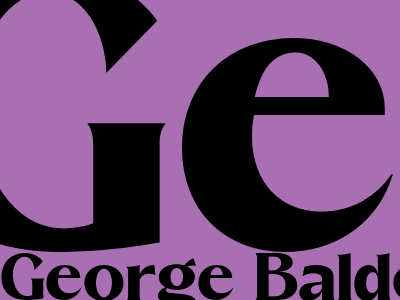
George Baldock
How to Elevate Your Website's Visibility: A Comprehensive Guide to SEO for Bloggers
Introduction
In the realm of the digital world, where countless websites vie for attention, optimizing your website for search engines (SEO) has become paramount. For bloggers, navigating the intricate landscape of SEO can be a daunting task. However, by implementing the strategies outlined in this comprehensive guide, you can significantly enhance your website's visibility and reach a wider audience.
Understanding SEO: The Basics
SEO encompasses a wide range of techniques that aim to improve a website's ranking in search engine results pages (SERPs). Search engines, such as Google and Bing, use algorithms to determine which websites are most relevant to specific search queries. By aligning your website with these algorithms, you can increase its chances of appearing high in SERPs, resulting in more organic traffic and potential conversions.
Key Elements of SEO
1.
Content Quality: Create valuable, informative, and engaging content that provides a positive user experience. 2.
Keywords: Identify and incorporate relevant keywords into your content, meta descriptions, and website structure. 3.
On-Page Optimization: Optimize page speed, mobile responsiveness, and internal linking to enhance user experience and accessibility. 4.
Off-Page Optimization: Build high-quality backlinks to your website from reputable sources to improve credibility and authority. 5.
Technical SEO: Ensure your website's technical aspects are optimized, such as XML sitemaps, robots.txt files, and structured data markup.
Content Optimization: Creating Valuable Content
Content is the cornerstone of SEO. To improve your website's visibility, focus on creating high-quality content that resonates with your target audience and aligns with their search queries.
Guidelines for Content Optimization
*
Keyword Research: Conduct thorough keyword research to identify terms that your target audience is searching for. *
Content Structure: Organize your content logically, using headings, subheadings, and bullet points to enhance readability. *
Content Length: Aim for long-form content that provides in-depth information and value to readers. *
Multimedia Integration: Incorporate images, videos, and infographics to break up text and enhance user engagement. *
Regular Updates: Keep your content fresh and relevant by regularly updating and publishing new articles.
The Power of Keywords: Optimizing for Search
Keywords are essential for SEO, helping search engines understand the relevance of your content to specific search queries.
Strategies for Keyword Optimization
*
Keyword Research: Use keyword research tools to identify relevant keywords that your target audience is using. *
Natural Integration: Integrate keywords into your content naturally and seamlessly, avoiding keyword stuffing. *
Meta Descriptions: Include target keywords in your meta descriptions to provide a concise summary of your content to search engines. *
Header Tags: Use header tags (H1, H2, H3) to incorporate keywords and structure your content. *
Image Optimization: Add alt text to images that includes relevant keywords.
Beyond Content: Technical SEO
While content is crucial, technical SEO is equally important to ensure that your website is easily accessible and crawlable by search engines.
Key Aspects of Technical SEO
*
Page Speed Optimization: Ensure your website loads quickly to provide a positive user experience. *
Mobile Responsiveness: Make sure your website is mobile-friendly, as Google prioritizes mobile-first indexing. *
XML Sitemap: Create an XML sitemap to help search engines easily discover and crawl your website. *
Robots.txt File: Use a robots.txt file to guide search engines on which pages to crawl and index. *
Structured Data Markup: Implement structured data markup to provide search engines with additional information about your content.
Off-Page Optimization: Building Credibility
Off-page optimization involves building external factors that influence your website's search engine ranking.
Strategies for Off-Page Optimization
*
Backlink Building: Acquire high-quality backlinks from reputable sources to enhance your website's credibility and authority. *
Social Media Engagement: Promote your content on social media to reach a wider audience and generate social signals. *
Local SEO: Optimize your website for local searches if your business serves a specific geographic area. *
Citation Building: Build citations for your business on local directories and data aggregators to improve local visibility. *
Monitor Your Progress: Track your website's ranking and performance using analytics tools to monitor the effectiveness of your SEO efforts and make adjustments accordingly.
Conclusion
By implementing the strategies outlined in this comprehensive guide, you can elevate your website's visibility, reach a wider audience, and establish your blog as a trusted source of information. Remember, SEO is an ongoing process, and by consistently monitoring your progress and adapting your strategies, you can maintain high search engine rankings and drive long-term success for your website.
Comments